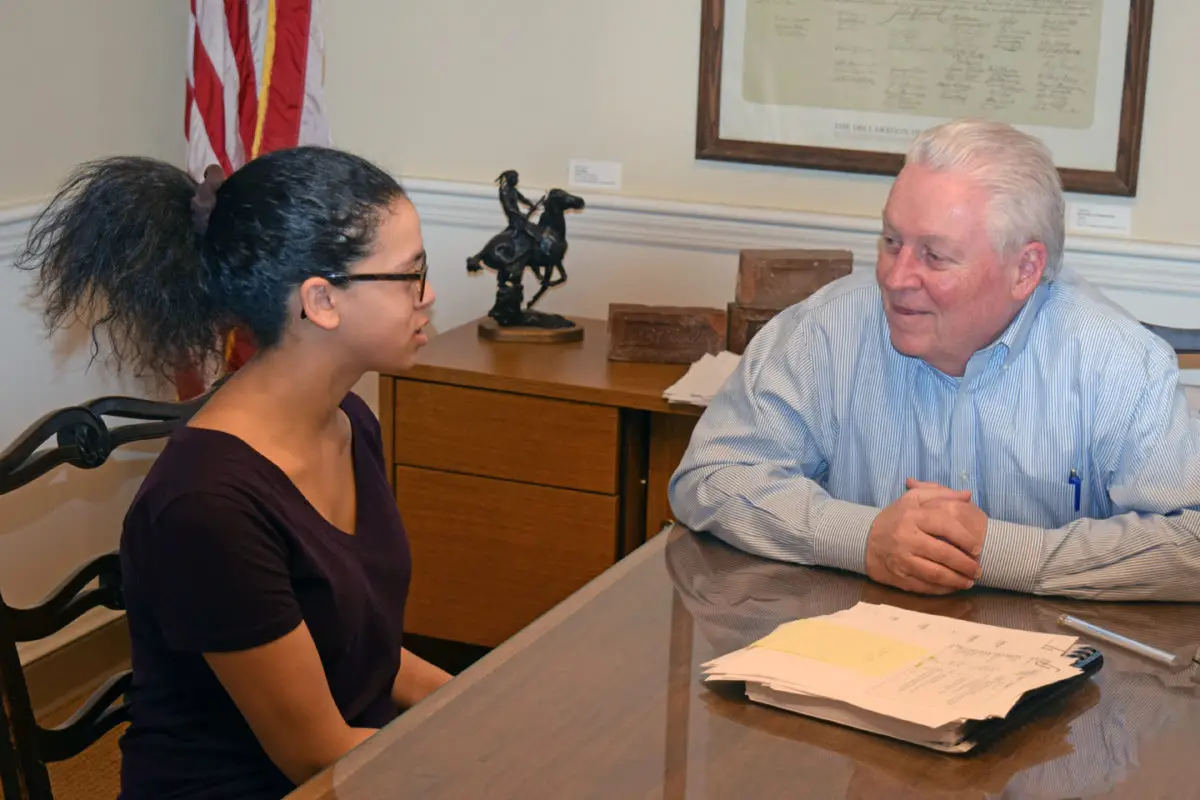First Selectman Mike Tetreau looks to build Fairfield’s commercial base

Fairfield First Selectman Mike Tetreau has a major problem with the level of state aid that his town receives from Hartford.
“Twenty-four months ago, the town of Fairfield was receiving about $9 million in state aid,” he told the Business Journal. “That has been cut progressively down to the most recent budget that was passed to $4.7 million, and now it has been reduced by another $1 million since that passing. The governor”™s most recent proposal that came out Feb. 7 had it cut down to $1 million.”
The state also has eliminated Fairfield”™s Educational Cost Sharing funding and funding for the payment in lieu of taxes or PILOT program, which help offset the lack of property tax revenue from Sacred Heart University and Fairfield University.
“This is making us more reliant on property taxes than ever before and putting the pressure on the town to fund public education, which is 65 percent of our budget,” Tetreau said. “The state has an obligation to fund public education. Not the towns, the state. The state is abdicating its responsibility.”
Tetreau, a Democrat who has served as first selectman since June 2011, has grown frustrated with how the state legislature functions.
“It is difficult to plan a town budget when you are seeing the state budget planned one year at a time based on whatever plan they can duct-tape together and get agreement from whatever the sources are,” he said. “The most recent biennial budget did not address it. It was one big Band-Aid designed to get us through 24 months and lasted less than 90 days before they had to go back and modify it.”
Still, Tetreau said of his town and its property tax level, “We”™ve got the fifth lowest mill rate in Fairfield County. The towns below us are Darien, New Canaan, Westport and Greenwich. We want to keep it from going any higher than we can. In order to cut expenses significantly more, we have to cut services, and that decreases the value of the town. So, we are certainly not looking at doing that.”
Rather than wait for new state support, Tetreau is focused on bringing a greater private-sector presence to Fairfield. The town is still reeling from General Electric”™s relocation of its headquarters to Boston in 2016, which Tetreau called a “$2 million revenue hit we have to make up.” The town may need to rethink its zoning laws if it wants to bring in new business opportunities, he said.
“Our focus is how to grow our grand list and how do we focus on economic development,” he said. “Especially our commercial base. Our commercial zone is about 4.5 percent of our land area and generates 10 percent of our tax revenue. That begs the question: is there something that we can do to strategically grow that percentage? That doesn”™t mean growing it everywhere and making everything commercial. But it does mean asking where can we develop more commercial business, or can we take what he have and make it more commercial?”
With a glut of vacant office space in Fairfield County, Tetreau does not see new corporate complexes as a part of that commercial development. Still, he pointed to a pair of recently opened properties near the Fairfield Metro train station, the Trademark Fairfield mixed-used development and the Orthopedics Specialty Group medical center, as commercial entities that enrich the town”™s business environment and tax revenue stream.
“The economy is driven by companies with under 500 employees,” he said. “We don”™t need Amazon or the large companies to come out here. What we need is small companies that are adding employees.”
Tetreau has also teamed with Stamford Mayor David Martin, Norwalk Mayor Harry Rilling, Greenwich First Selectman Peter Tesei and Westport First Selectman Jim Marpe in what is informally known as the “Fairfield County Five.” They have banded together to sell their section of the state to companies seeking to relocate within the tristate area. The quintet made one presentation to potential corporate residents last fall and plans another in the spring.
“We”™re a small state with 169 small towns and there is no county government,” Tetreau said. “We started marketing Fairfield County together so that we”™re not in competition, but we are helping each other. We”™re all Triple-A towns with good school systems. As a mix, we have everything you can want.”
One potential wild card in Fairfield”™s future is the fate of casino gambling in neighboring Bridgeport. Tetreau said that while MGM Resorts has spoken about offering financial payouts to the communities surrounding Bridgeport if a casino resort opens there, he has yet to receive definitive details on that proposal.
Farifield”™s first selectman said that he is eager to hear specifics from the growing number of candidates for governor on how they would address economic development issues.
“I”™d like to hear if they have an approach. I am not going to ask if they have an answer for our fiscal crisis, but I”™d like to hear if they have an approach to solving our fiscal crisis. I am not hearing enough of that talk.”
“I”™m an engineer at heart,” said Tetreau. “That”™s what my college degree was in. And one of things I”™ve learned is that you must define the problem correctly if you want to come up with the right answer. Otherwise, you come up with an answer to the wrong question, which doesn”™t help.”